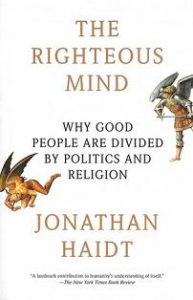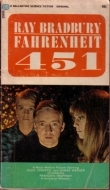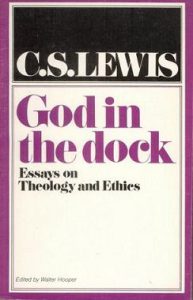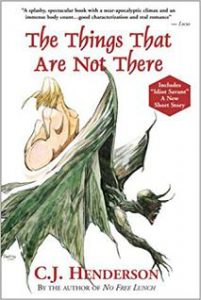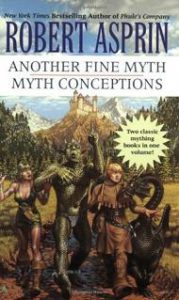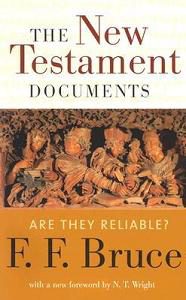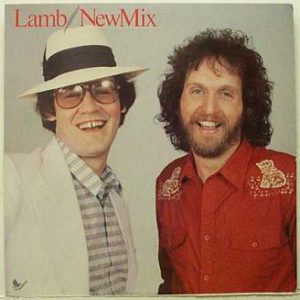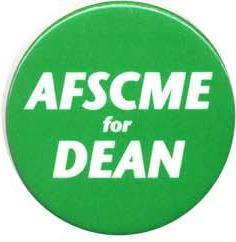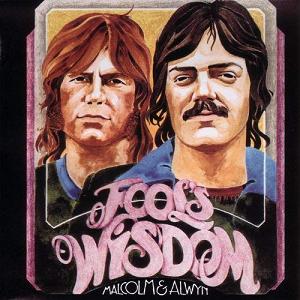This is mark Joseph “young” blog entry #263, on the subject of The Ten Book Cover Challenge.
As mentioned, Jeni Heneghan tagged me in a ten-bookcover challenge on Facebook.
**1**
I’m starting my list–and I know I’m not really supposeed to say anything about the books, but that seems a bit pointless to me–with one of the books I most enjoyed in recent years, Ian Harac’s Medic.
I had previously read his The Rainbow Connection, and enjoyed that thoroughly, but I think he topped that with this one.
I am also tagging Ian Harac to take up the challenge. The deal is for ten days post the cover of a book you “love” (take that however you wish) and name someone to do the same.
My Goodreads review is here.
Interestingly, at the time I appear to have liked Rainbow Connection better, but in retrospect Medic is the one that comes to mind.
**2**
It’s a busy day, but let me not forget my obligation to Jeni Heneghan, who challenged me to post ten book covers of books liked or something in ten days, and nominate ten people to the same task. This time I’m going for something non-fiction, The Righteous Mind by Jonathan Haidt.
Haidt explores six facets, what I think if memory serves he calls pillars, which are the bases of our notions of “good”, and how most people in the world use all six but modern liberals use only three, and how this results in very different views of what is right. It’s perhaps the best exploration of these ideas I have encountered.
Again, my GoodReads review is here.
And I almost forgot: I nominate Eric Ashley. I’ve enjoyed many of the books he sent me.
**3**
Time to post a book cover (thank you Jeni Heneghan for the invitation). I said I would try to avoid the obvious Lewis and Tolkien titles, but this is a close friend of theirs, Charles Williams, of whose handful of wonderful books I think my favorite is still the first one I read, Descent Into Hell.
I first read this in college as a course assignment in modern fantasy/sci-fi literature, and was immediately much impressed. It was probably two or three decades later that I found it again, along with a couple other of his titles (War in Heaven, Greater Trumps), and was not disappointed in the least.
Williams is wonderful at blurring the line between the material and the spiritual, the natural and the supernatural. His characters interact with each other, whether alive, dead, or imaginary. This book also gave me some very challenging concepts–such as that bearing each other’s burdens was a real active thing.
And because this book reminds me of someone else who read it in that course who also found it interesting, I’m going to tag Richard Van Norstrand to take up the challenge. You’re not required to do so much as I do, just over the course of ten days post the covers of ten books you “love” in whatever sense, and invite someone else to do the same. This is my third.
For what it’s worth, I’m also building a web log post from these, so once the ten have run you can expect a complete summary, largely because I hate these multiple-first-post threads when I want to know what the other posts were.
**4**
Back in the early 1970s when I was at Luther College the library had one of those books sales, clearing out old copies. I wound up standing beside the Dean, Dr. Harm, as he examined a book clearly older than I was, and commented that it was once the classic book in apologetics. For twenty-five cents, I figured I could afford it.
I’m about 98% certain that the cover and title page gave the name as Evidences of the Christian Religion by William Paley. I don’t find that title on Goodreads, which apparently finds no editions more than ten years old and calls it by various names of which Evidences of Christianity is the nearest to the original.
I don’t have a review of it posted anywhere. In fact, it was a ponderous read for a college sophomore, and when I was about three-quarters finished the aforementioned Richard Van Norstrand borrowed it and took it home, only to have his father borrow it from him, and I never saw it again. Still, I got through the bulk of it.
This was the book in which Paley presents the teleological argument for the existence of God in its most famous form, the watch argument, that if you find a watch you deduce that there must be a watchmaker, and since the universe runs like a watch, there must be a universe maker.
I was impressed by the meticulous way in which Paley presented his argument–no leaps, no skipped steps, no assumptions that the reader will see how to get from A to D without having been told what B and C are. Part of that no doubt is that writing in the nineteenth century (and I’ve read several other nineteenth and early twentieth century books) he did not have to compete with more concise forms of entertainment–readers expected books to be long, because otherwise they didn’t get their money’s worth. Yet it was instructive, in that many writers, and perhaps including me, tend to make such leaps and assume the reader understands the intervening reasoning.
I keep swithering concerning who to tag next, but I think I’ll go with Nikolaj Bourguignon. Odds are he’ll post a lot of books I can’t read (the word for someone who speaks several languages is multilingual, while one who speaks two languages is called bilingual, and one who speaks only one language is called American, and that’s pretty much me–I took French in high school, but can’t even read the French translations of my own articles at the French edition of Places to Go, People to Be). Still, I know he’s a reader with broad interests, and that will make it interesting.
**5**
Almost forgot the book cover on this overladen day, but I’d already selected the book, Fahrenheit 451 by Ray Bradbury.
I read the book in high school as part of an English course in science fiction literature, and having more recently re-read it cited it as recently as a couple years ago.
My Goodreads review is here.
In short, this book is everything a great science fiction classic should be. It tells a compelling story in a futuristic world while making a significant point about contemporary issues. The primary issue here is censorship, government control of information, and while government control of information doesn’t seem like a significant concern our articles in recent years on freedom of speech might suggest otherwise.
I’m going to invite Rick Maus to play next, because he was in that class and as I mentioned somewhere else in my writing was a member of that Great Meditators Society decades ago (he probably doesn’t even remember it), and it might be interesting to see what books he’s been reading. The invite is to post ten book covers in ten days (it does not require saying anything about them other than implicitly that these are books you in some sense “love”–that part is just my inability to keep silent) and nominate ten people along the way to do the same.
I’m also adding a tag to the current location of the Freedom of Expression series in which Bradbury is mentioned.
**6**
Again with acknowledgement that Jeni Heneghan invited me to participate in this, let’s do the next book cover. I know I promised not to clutter the list with C. S. Lewis–undoubtedly my favorite author, and I could name easily a dozen from A Horse and His Boy to Perelandra to Mere Christianity to The Great Divorce, but I’m going to go with God in the Dock.
My Goodreads review is here.
The book is a collection of essays and letters previously published in many sources covering a wide variety of subjects, and arguing them intelligently. You might not always agree with Lewis, but if you haven’t read his arguments you can’t really effectively defend your own positions.
I’ve been meaning to tag Edward Jones to invite him to play. The game is, post ten covers over ten days of books you “love” in whatever sense you want to take that; it is not required that you say anything about them (I just do, because, well, you know me, I have to talk about stuff). You are also supposed to invite someone else to do the same each day. No obligation, of course, but I’m interested in what books you would pick.
(We actually have a copy of a book here that we bought for you some years back and haven’t had the chance to gift. Maybe if it sits here a bit longer I’ll read it again.)
**7**
For today’s book cover I’m stretching the meaning of the word “love” a bit. By stretching a bit, I mean I hate this book, and I hated it when I read it–but I think it’s an important read, partly for many of its ideas, and partly because people think it says things it doesn’t. The book is 1984 by George Orwell.
I read his Animal Farm in high school, and found it interesting and entertaining, so when I saw this book I decided it might be more of the same.
Boy, was I mistaken. It is a bleak story with a horrible ending.
Yet it is compelling, and the world it paints is filled with concepts that are important for us to grasp–notions like doublespeak, when the words you say don’t mean what the words mean.
However, people often think that Orwell predicted the world in which we presently live. His vision is completely wrong on the critical points. In the world he presents, the ruling powers control all information, rewriting the records whenever they want history to be different from what it was, and it is impossible to find anything other than the party line. In our world, the problem is reversed–we have an information explosion, and you can find everything, every position, every opinion, expressed on the Internet, with no one in control, to the point that it is often difficult to know what information is true. No one controls it. So Orwell was wrong.
He still tells a compelling story, and no one should cite this book who has not read it, because it doesn’t say what many people claim it says.
I’m going to tag Donald Chroniger next: you are invited to post ten book covers of books you “love” (however you interpret that) over the next ten days, and invite one person each day to do the same. You are not required to say anything about the book beyond identifying it.
Have fun.
**8**
This is number eight in the book cover challenge Jeni Heneghan invited me to tackle. I’ve gone with a book by a recently deceased friend, C. J. Henderson, my favorite of his books and the first in the Teddy London series, The Things That Are Not There.
C. J. wrote a lot of Cthulu Mythos stuff, with the blessing of the Lovecraft family, and although the monster here is called Ctala it’s the same kind of being. Rather than coming from outer space, C. J.’s unimaginable creatures come from parallel dimensions, more credible in the modern age.
The other significant difference, as he shared in our chats at Ubercon, was that whenever his characters faced these incomprehensible evil beings, he found he could not stop them from fighting back. London in this book is hired by a girl who thinks she is being followed by something–and then the something falls through the window, and he and the office maintenance man struggle to kill it and take it to a doctor to attempt in vain to identify it. From that point forward they discover that they are on the front line to prevent the opening of a bridge from another dimension whose chief denizen wants to devour all of humanity. It is a tense and exciting book throughout, and I’ve read it twice and will probably read it again one day. I’ve read the rest of the series, and although most of them are good, this is far and away the best.
I’m going to tag Harry Lambrianou, because he’s commented on a couple of these book postings so I know he’s following the series and will know what to do.
Oddly, I have no idea what book I’m going to post tomorrow, or who I’m going to tag, so it will be a surprise for all of us.
**9**
I decided on today’s book. The copy I happen to have is actually two books in one cover, but although I’ve read the first ten or so of the series and enjoyed them all, the first book is the one I’m tagging: Robert Lynn Asprin’s Another Fine Myth.
It comes alone or in this two-book set, or in a five-book volume (I think). It’s a playful bit of fantasy that tells a good story while at the same time being very tongue-in-cheek about fantasy tropes. My Goodreads review of it is here.
Looking for someone to tag, I stumble upon Dave Mattingly, who was himself a publisher for a while and even put one of my books in print, so we’ll give him the chance to pick ten covers of books he in some sense “loves”, and name ten people to do the same.
**10**
I long debated what the final book on this list of ten should be, and settled on Paul Tillich, A History of Christian Thought: From Its Judaic and Hellenistic Origins to Existentialism.
It’s certainly not “light reading” by any stretch of the imagination, but it is an excellent source either as a text or a reference for the development of western theology and philosophy from the second century through the Enlightenment. It gets a bit weak after that, but still covers many of the important names. My Goodreads review is here.
I’ve got a couple of honorable mentions to post.
First, let me apologize to my (first) cousin (once removed) T. M. Becker (Writer of Young Adult Fantasy). Her novel Full Moon Rising was truly excellent, as my web log post #223: In re: Full Moon Rising asserts. Honestly, the choice tipped on the fact that I had already posted six fiction titles and only three non-fiction, and I thought that if I couldn’t balance them at least I should get closer.
Also on the “almost made it” list is F. F. Bruce, The New Testament Documents: Are They Reliable, a classic which more people should read which also has the virtue of being relatively short. I chose otherwise mostly because this one is a rather limited subject–an extremely important one which he handles extremely well, but still not as valuable as a reference.
I need to tag one more person, so I’m going to choose Tsiphuneah Becker, to see what sort of books she likes. In case you’ve not been following, you are invited, without obligation, to post covers of ten books, one a day, over the next ten days. They should be books you in some sense “love”, and you are not obligated to say anything about them. You also are asked to post, again one per day, names of ten people to undertake the same challenge.
*****
So that’s the conclusion of the ten-bookcover challenge. I hope you found an interesting book in that batch.

